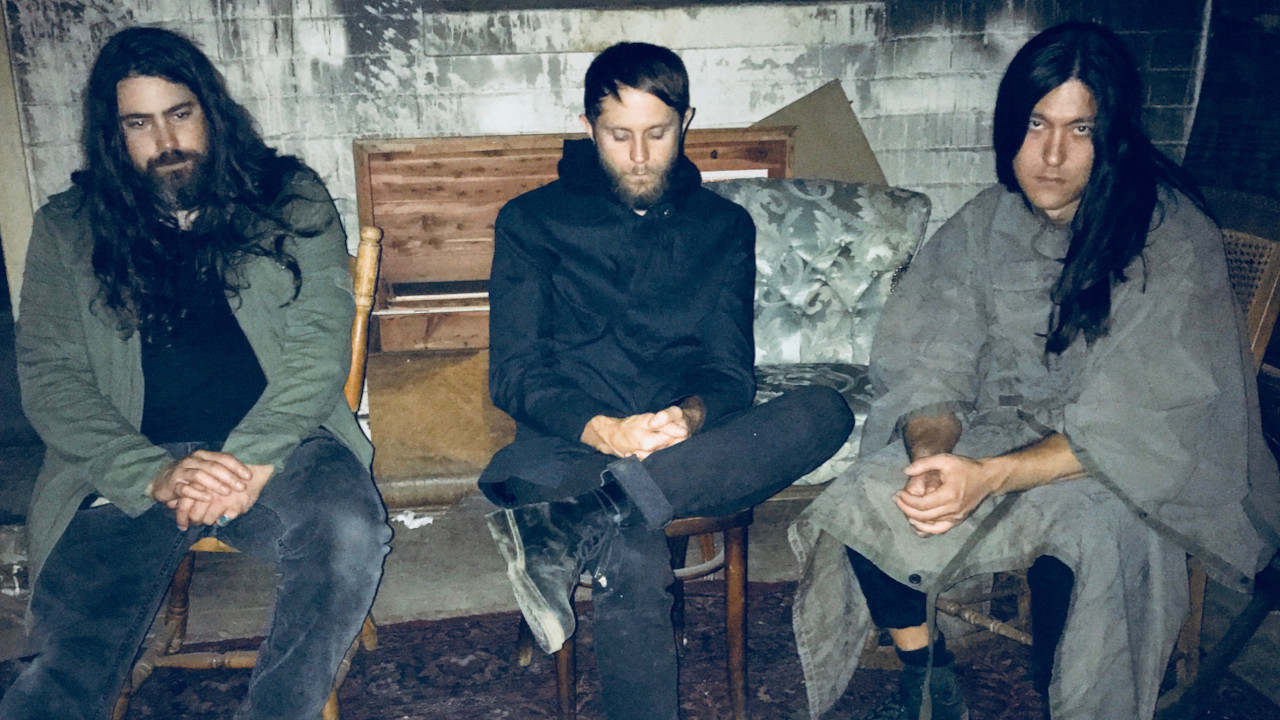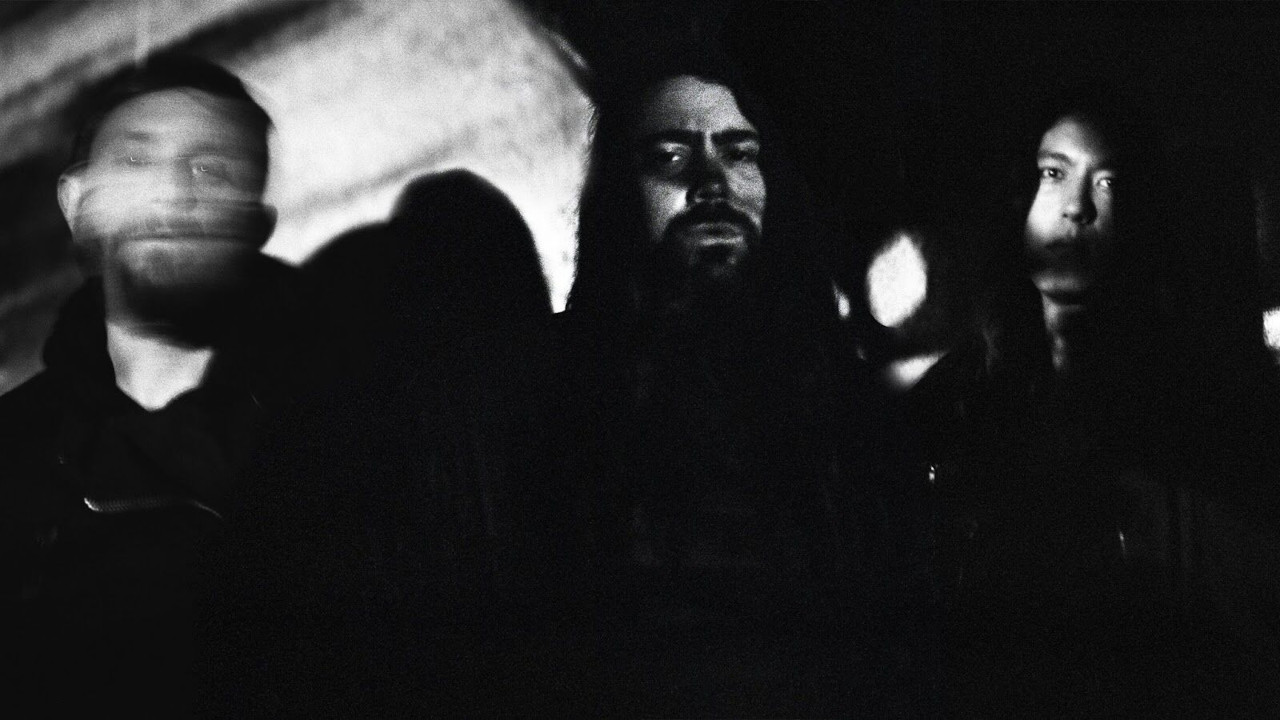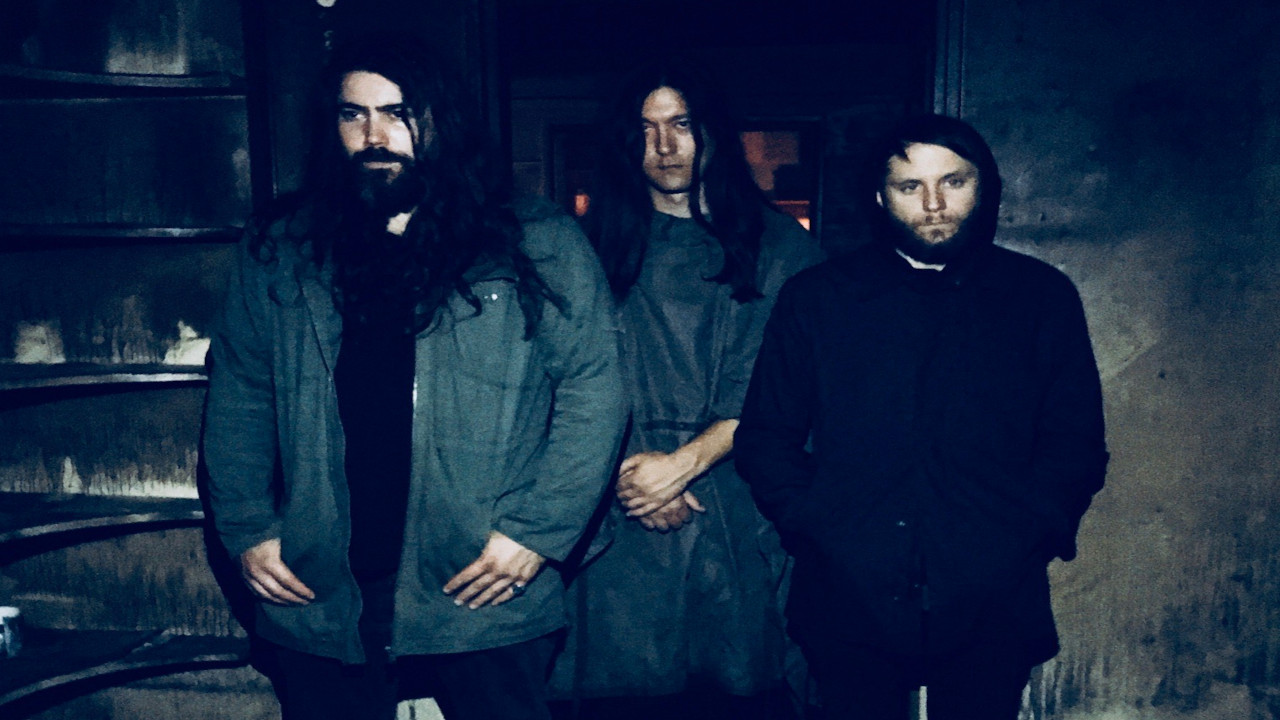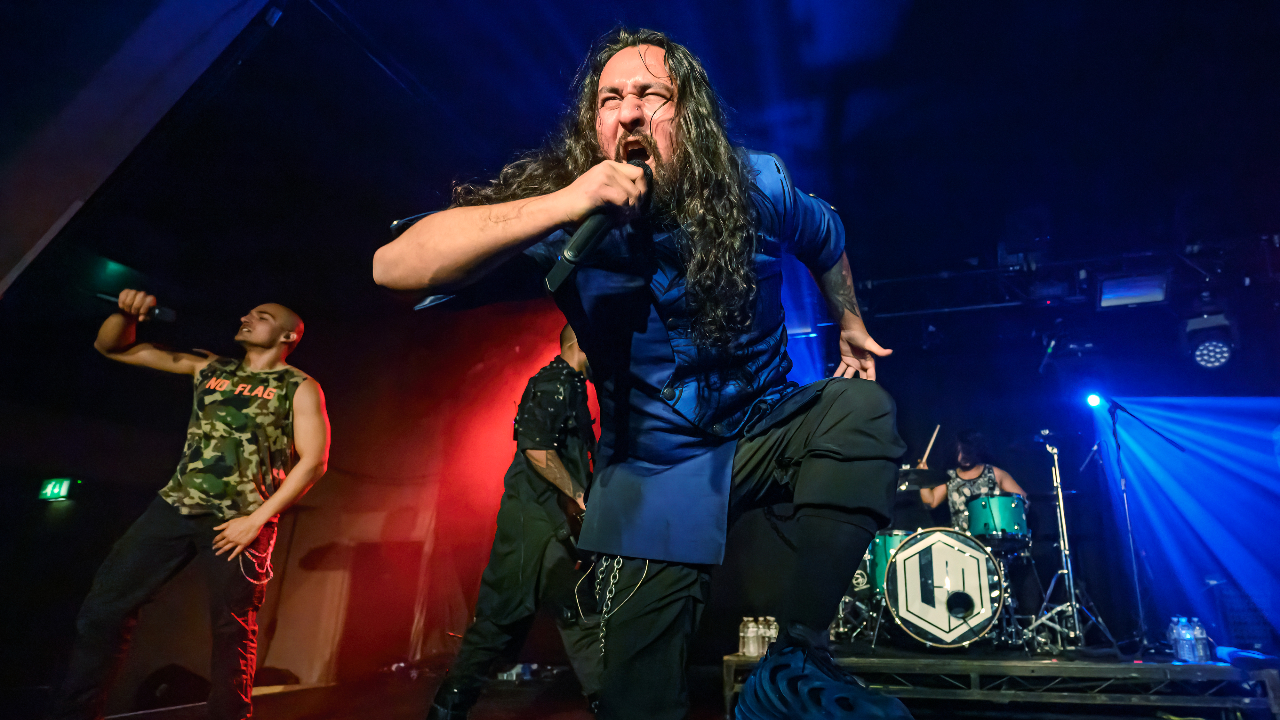Health: The Trent Reznor-approved industrial band angering hipsters
How Health went from LA's vibrant noise scene to collaborations with some of the most experimental names in metal

If you’d turned up at East Hollywood’s Il Corral club on a Monday night in 2005, you would have witnessed carnage. A fixture on LA’s underground noise and experimental scene, its crowds were as unpredictable, loud and aggressive as the bands onstage.
“There was a rope swing in the middle of the show floor, that was connected to a rafter on the ceiling,” remembers Health frontman Jacob Duzsik, who played there. “And when things would really heat up, someone would just go and stand on a seven-foot window ledge, and then Tarzan- swing into the circlepit and double-kick people in the back. It was like Mad Max.”
Illegal shows took place in squats, where people would play ‘free noise’ – improvisational compositions, sometimes bolstered by circuit-bent instruments. It was a far cry from the more arty, serious noise scenes in New York and London, says Jacob, and it was only a matter of time before the rest of the world noticed.
“We knew from underground touring the country that something really unique was happening in LA. We kinda all predicted, ‘This is going to blow up in the press. Particularly hipster, indie, Pitchfork press,’” remembers Jacob. “It was too cool. And that is what really allowed us to have a career.”
Health, now working on their sixth studio album, might have been given a leg up by the hipster press, but their dark sound and aesthetic was often at odds with the other bands it covered. You might remember them touring with Nine Inch Nails in 2008, a year after the release of their self-titled debut album. Or you might have heard the ominous, disquieting soundtrack they wrote for blockbuster videogame Max Payne 3 in 2012.
"Is this selling out? We didn't care."
Jacob Duzsik

More recently, metal’s ears pricked up with 2019’s atmospheric, industrial Vol 4: Slaves Of Fear (title inspired by Sabbath’s fourth album), and 2020’s Disco4: Part 1, a collaborations album featuring some of their most respected peers. This year, they’ve released songs with Deftones’ Chino Moreno (Anti-Life, for DC’s Dark Nights: Death Metal Soundtrack), and Nine Inch Nails (Isn’t Everyone). At France’s Hellfest next summer, they’re on the same stage as Trent Reznor and co, plus Ministry, Skinny Puppy and Killing Joke.
“What’s so exciting is that there are these overlapping areas of music – that’s what’s so freeing about the internet, because people’s niches have become less tribalistic, and so there’s this cross-pollination now,” enthuses Jacob. “Dudes at Hellfest can headbang to Perturbator just playing this heavy-ass synth music, and it doesn’t feel out of place.”
Sign up below to get the latest from Metal Hammer, plus exclusive special offers, direct to your inbox!
Health began as the brainchild of Seattle transplant Jacob and bassist John Famiglietti, his colleague at Hollywood’s uncool, touristy and “garish and gaudy” Guitar Center. Teaming up with Jacob’s housemate, Jupiter Keyes, on guitars/synths (who would leave the band in 2015) and drummer BJ Miller (recruited via Craigslist), they set to work making music that sounded like it belonged in the gnarly venues and warehouses of downtown LA.
Driven by one-upping the experimentalism and incendiary performances of their peers, they devised something called the ‘zoothorn’, named after Captain Beefheart guitarist Zoot Horn Rollo. They would mic up their instruments and run the microphone through a pedal chain, creating cacophonous feedback and loops. It was weird noise, for sure, but created in a more controlled manner.
“You’d see people do all kinds of crazy shit. Like circuit bent instruments, or something that they would make for one show and then break,” recalls Jacob. “We were excited by that. We were trying to figure out: how do we integrate something from that perspective into the traditional band set-up, but use it in songs that are composed, not improvisational?”
With little money in their pockets, they recorded their abrasive, echoey, self-titled debut album at grungy LA club The Smell during daylight hours, rats emerging from under the stage. Nevertheless, it caught the ear of Trent Reznor, who invited them on tour. Health were incredulous and nervous – especially once the run began, and the crowds booed them every night. Trent soon pulled them aside. Jacob panicked. Were they going to get kicked off?
Luckily, Trent had figured out the problem; from their vantage point below the nine-foot arena stages, people couldn’t clearly see what was going on with the zoothorns, so he offered Health the opportunity to use Nine Inch Nails’ state-of-the-art LED screens. “To let an unknown fucking noise band that’s pissing off your fans use these multi-million dollar things that you’re having to employ people to build and calibrate… it’s just unheard of,” Jacob marvels, still bowled over by the generosity.
But there was more excitement to come. Health released follow-up album Get Color in 2009, and then the music department at Rockstar Games got wind of them, inviting them to score the tense bits of multimillion-dollar videogame Max Payne 3. They ended up scoring the whole thing – much to the disappointment of some of their fans.
“We lived in this underground music, Pitchfork world, where the question still seemed really pertinent to people: is this selling out? Is it not cool to do this?” explains Jacob. “With hindsight, it seems preposterous. We didn’t care.”

Max Payne 3 didn’t just raise Health’s profile, it set them on a new sonic trajectory. They’d gone from “lazy young dudes, getting fucked up or whatever” to spending a year composing intense music, day in and day out. They’d never been happy with the scrappy production on their first two albums and, in the years since their release, new trends had sprung up: dubstep and EDM. While Jacob describes them as “corny and tasteless”, he recognised the sheer weight of their sound.
“You’d hear a dubstep drop or some EDM song, and you’d be like, ‘This is so loud. This is so powerful. There’s so much low end. Heavy music was still trapped in the mid range of not using those really revolutionary production techniques that kids were just figuring out on their laptops on [digital audio workstation] Ableton. And so that became our cross to bear; we wanna make a heavy record that can tastefully combine sonic elements from electronic music. Which, when you think about it, is exactly what industrial music does.”
The result was 2015’s “neo-industrial” record, Death Magic. From there, it wasn’t too much of a leap to 2019’s Vol 4: Slaves Of Fear. Jacob and John made an ‘audio mood board’ that drew on some of their favourite Slayer, Metallica and Pantera records, as well as sub-bass and electronic elements, resulting in a “fucking heavy-ass record”. Pitchfork hated it. “Health used to make lithe, multifaceted songs that wrapped daring pop melodies in bristling noise; now, they seem content to complain into a murky hybrid of trip-hop and metal,” said the reviewer, awarding it a score of 3.4 out of 10.
Jacob smiles wryly. “Pitchfork were incredibly giving to our band, but we never really fit. We’re not an indie band, we don’t have jangly guitars, we were always the odd man out. And so we were making Vol 4, and we were like, ‘Pitchfork’s gonna hate this fucking record.’
“From doing the Max Payne stuff, and seeing people at our shows, we were like: ‘These aren’t Pitchfork kids. They’re kids who are connected to our music because it’s dark and heavy, and it means something to them. Subconsciously, I think we wanted to make a record for them. And we had this sense that there are fans of heavy music that have never heard about our band, that we think would like us.”
In the UK, Health went from supporting indie bands such as Interpol to headlining a stage on the Bring Me The Horizon day of London’s All Points East festival. Each of their studio albums is usually accompanied by a remix album, but for Vol 4, they decided to do a collaborations album instead. A heavy collaborations album: Disco4: Part 1, featuring original, amped-up songs made with the boundary-pushing likes of Perturbator, Full Of Hell and Ghostemane.
“This is going to sound grandiose, but there aren’t many collaboration records, so it became something where we wanted to set a benchmark,” explains Jacob. “I wanted us to make this weirdly compelling document of musicians collaborating, that still plays like an album.”
Now they’re making Part 2, which will turn it into a double album, starting with that Health x Nine Inch Nails track. It’s the second time they’ve worked together; Trent co-produced the band’s 2010 song, USA Boys, at his home studio. He’s always been like a mentor, says Jacob, admitting: “Sometimes I feel we let him down by not getting bigger.” Nevertheless, Health are 16 years into their career and still pushing themselves outside their comfort zone, something their Grammy, Oscar and Emmy award-winning mentor must surely approve of.
Earlier, Jacob mentioned ‘kids’ connecting to Health’s music because it’s dark and heavy, but does he feel the same way as an adult? Is it cathartic for him?
“Absolutely,” he shoots back. “And maybe I wouldn’t have been able to answer that question so definitively if not for the wall-to-wall dogshit that was 2020. I don’t want to be too hokey by saying music saved my life, but I realised how quintessentially important it was for me on a therapeutic level. Understanding why music makes the hairs stand up on the back of your arm, or why you get a knot in your throat, or why you want to throw a chair across the fucking room.”
Or, why those Monday-night crowds in 2005 wanted to swing across a circlepit and raise hell. Health may have got their start with the indie crowd, but it’s time to claim them as our own.
Disco4: Part 1 is out now. Their song with Chino Moreno appears on the Dark Nights: Death Metal Soundtrack. Both are out via Loma Vista

Eleanor was promoted to the role of Editor at Metal Hammer magazine after over seven years with the company, having previously served as Deputy Editor and Features Editor. Prior to joining Metal Hammer, El spent three years as Production Editor at Kerrang! and four years as Production Editor and Deputy Editor at Bizarre. She has also written for the likes of Classic Rock, Prog, Rock Sound and Visit London amongst others, and was a regular presenter on the Metal Hammer Podcast.
